Important
You are browsing the documentation for version 4.1 of OroCommerce, OroCRM and OroPlatform, which is no longer maintained. Read version 5.1 (the latest LTS version) of the Oro documentation to get up-to-date information.
See our Release Process documentation for more information on the currently supported and upcoming releases.
Configure Microsoft Office365 OAuth Integration¶
Hint
Microsoft Office365 oAuth is available since OroCommerce v4.1.9. To check which application version you are running, see the system information.
Integration with Microsoft Office365 via oAuth 2 API enables users to log in with their Office365 account and connect their mailbox to the Oro application using OAuth authentication. To achieve this, you need to register a custom Azure application and connect it with your Oro application.
Register an Application in Azure¶
Create a new Azure Active Directory Application¶
The first step is to create a new Azure Active Directory application on the Microsoft side:
Navigate to the Azure portal.
Ensure that you are logged into your microsoft account and access to the Azure platform is granted.
Open the menu on your left and click Azure Active Directory.
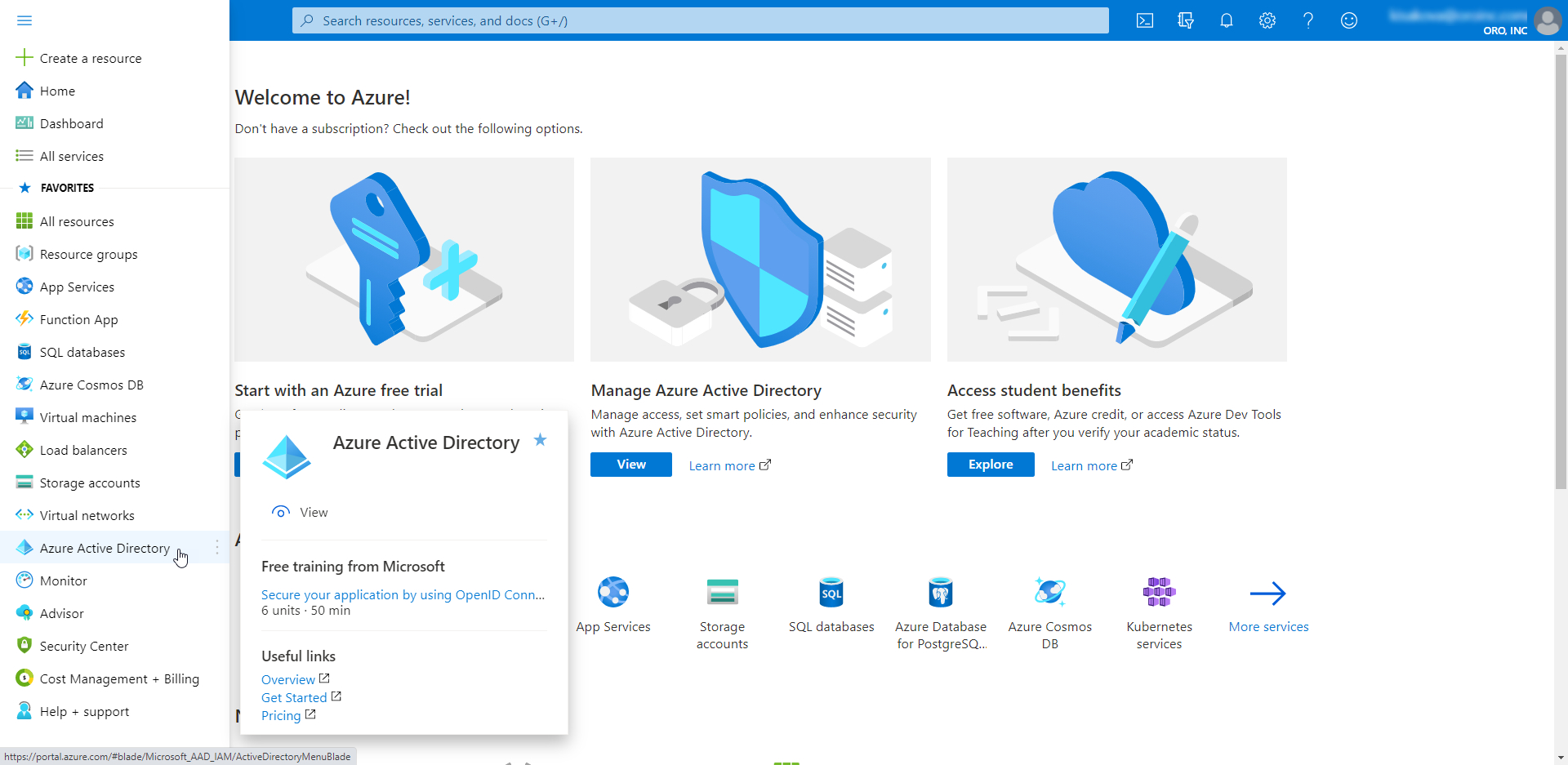
Navigate to App Registration and click New Registration.
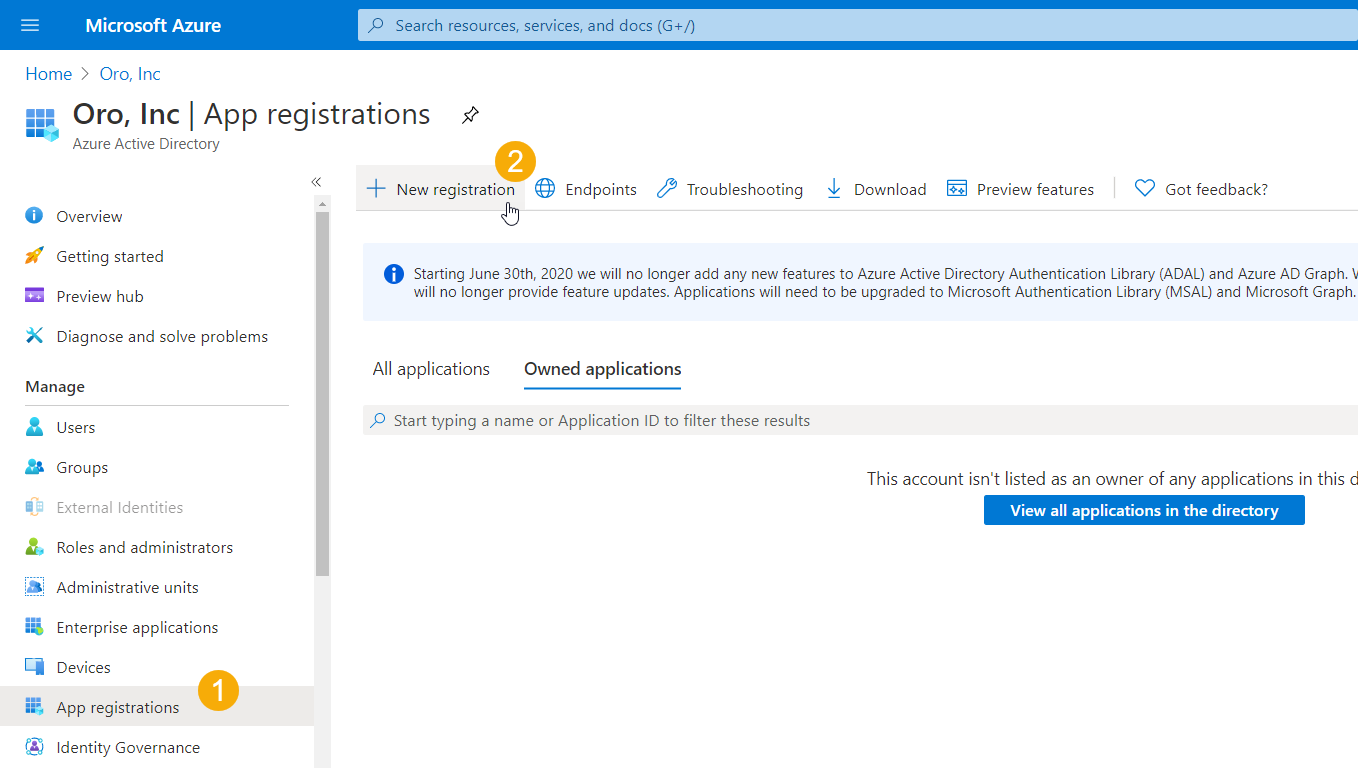
Provide application information and click Register.
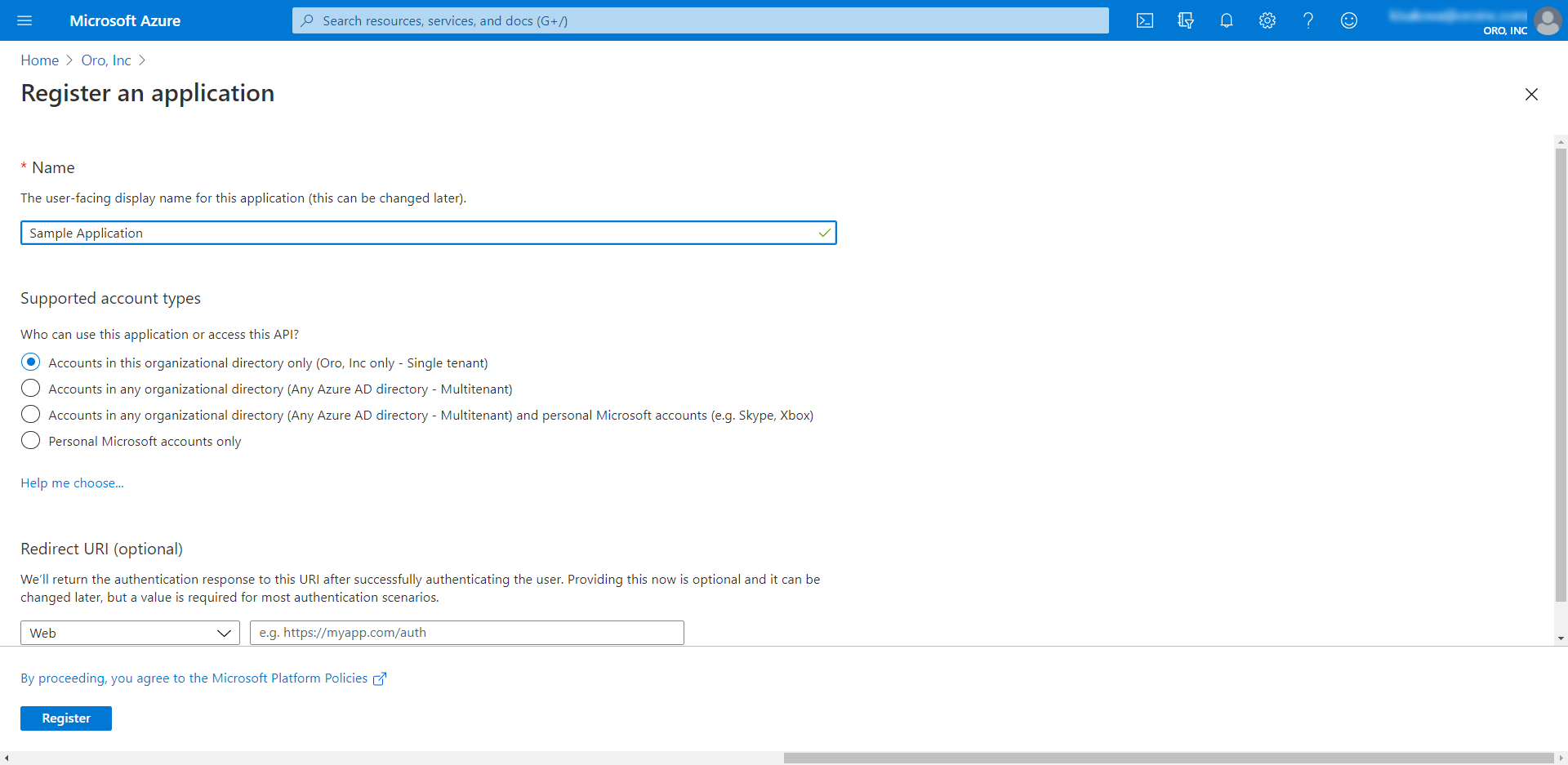
Once you create the application, its basic information, such as Application (client) ID and Directory (tenant) ID, is displayed on the app’s main page section in the Essentials section.
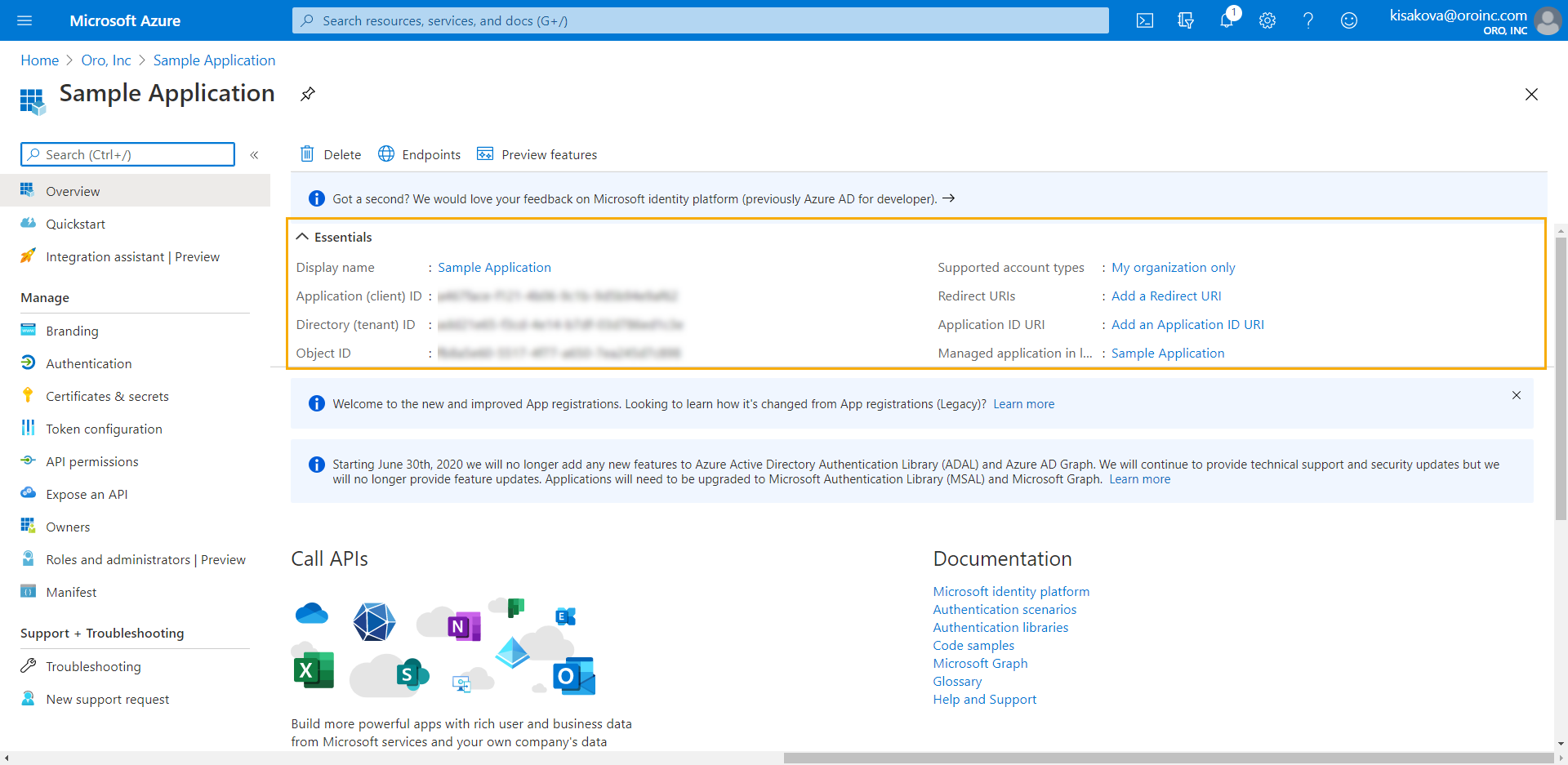
Create a Client Secret¶
To create a password/client secret, navigate to Manage > Certificates and Secrets.
Click New Client Secret and fill in the form.
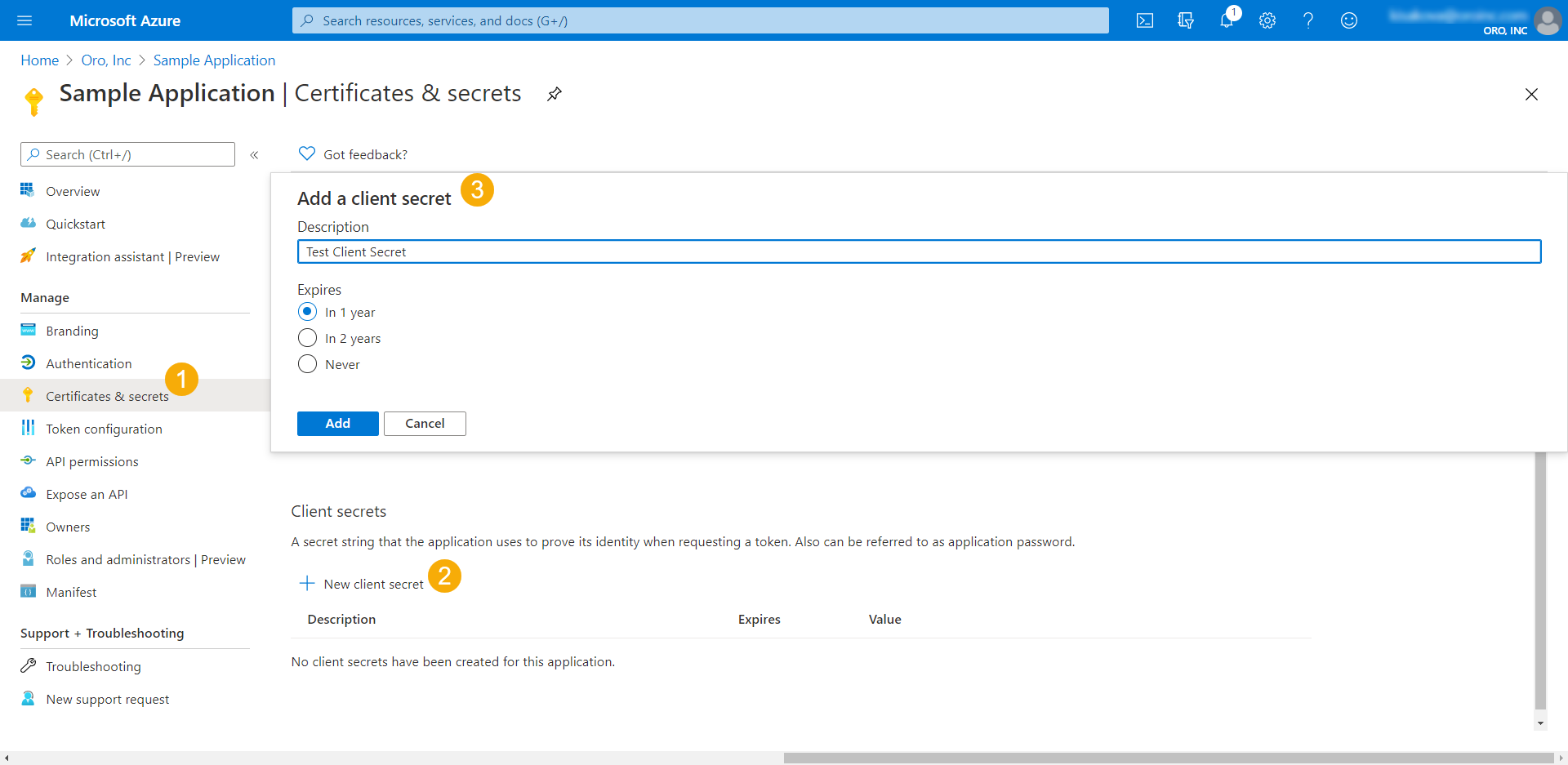
Important
Remember to copy the client secret as soon as you create it. You will not be able to retrieve it after you perform another operation or leave the page.
Grant API Permissions¶
Next, define the rights that the application will be able to grant.
In the panel to the left, click API permissions.
Select the permissions that your application needs access for. Try narrowing down the access to the smallest possible/required set.

The screenshot below illustrates a set of permissions for User profile + Email access to Office 365 services provided by Microsoft. You can use this set to authorize IMAP/POP/SMTP access (receiving, synchronizing and sending email messages and email account information):
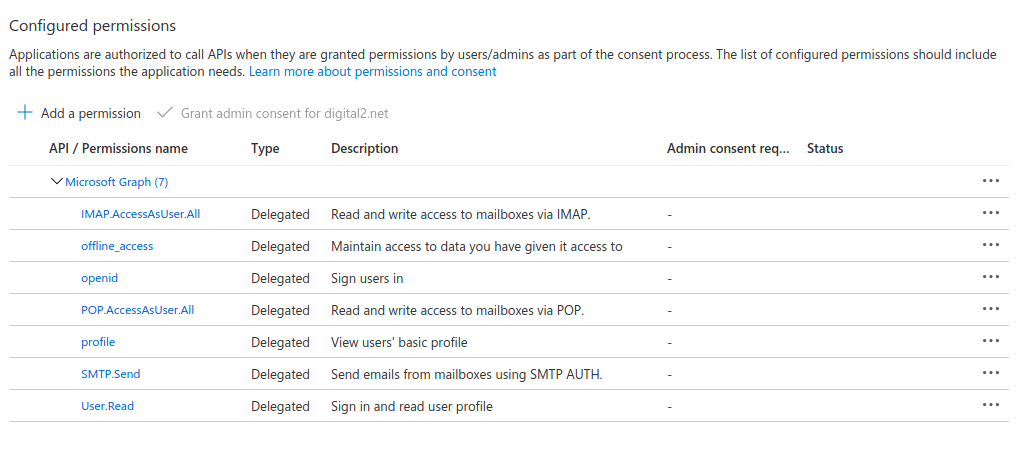
Click Add a permission and then Microsoft Graph.

Click Delegated Permissions and select the ones that you need. You can also use Search.
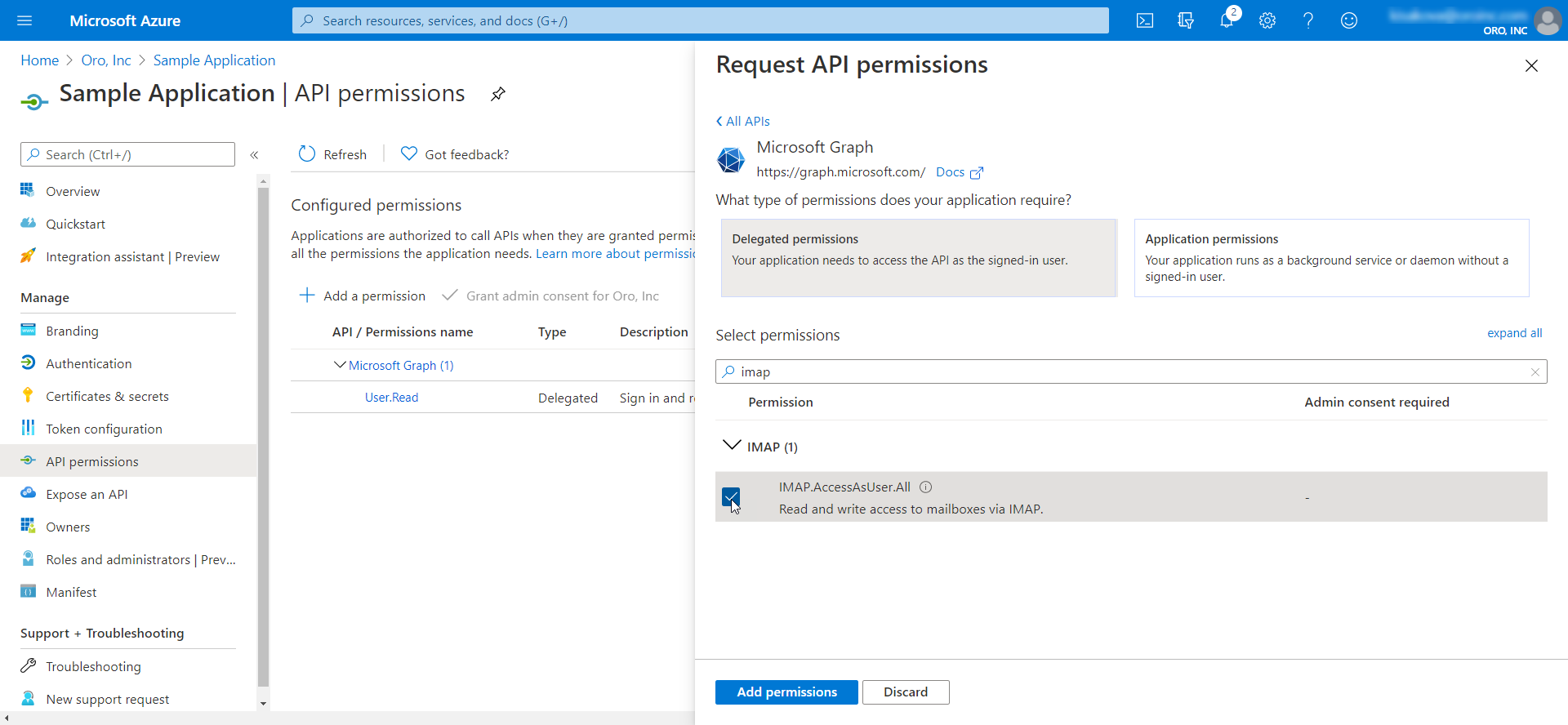
Note
Some access rights may require Administrator Consent. It is an administrative task and can be only performed by an organization admin user.
Click Add permissions.
Important
Please be aware that in order to complete the active directory application configuration, you will need to copy the value of the Redirect URI from the Microsoft System Configuration Settings of your Oro application and paste it into the Azure application settings:
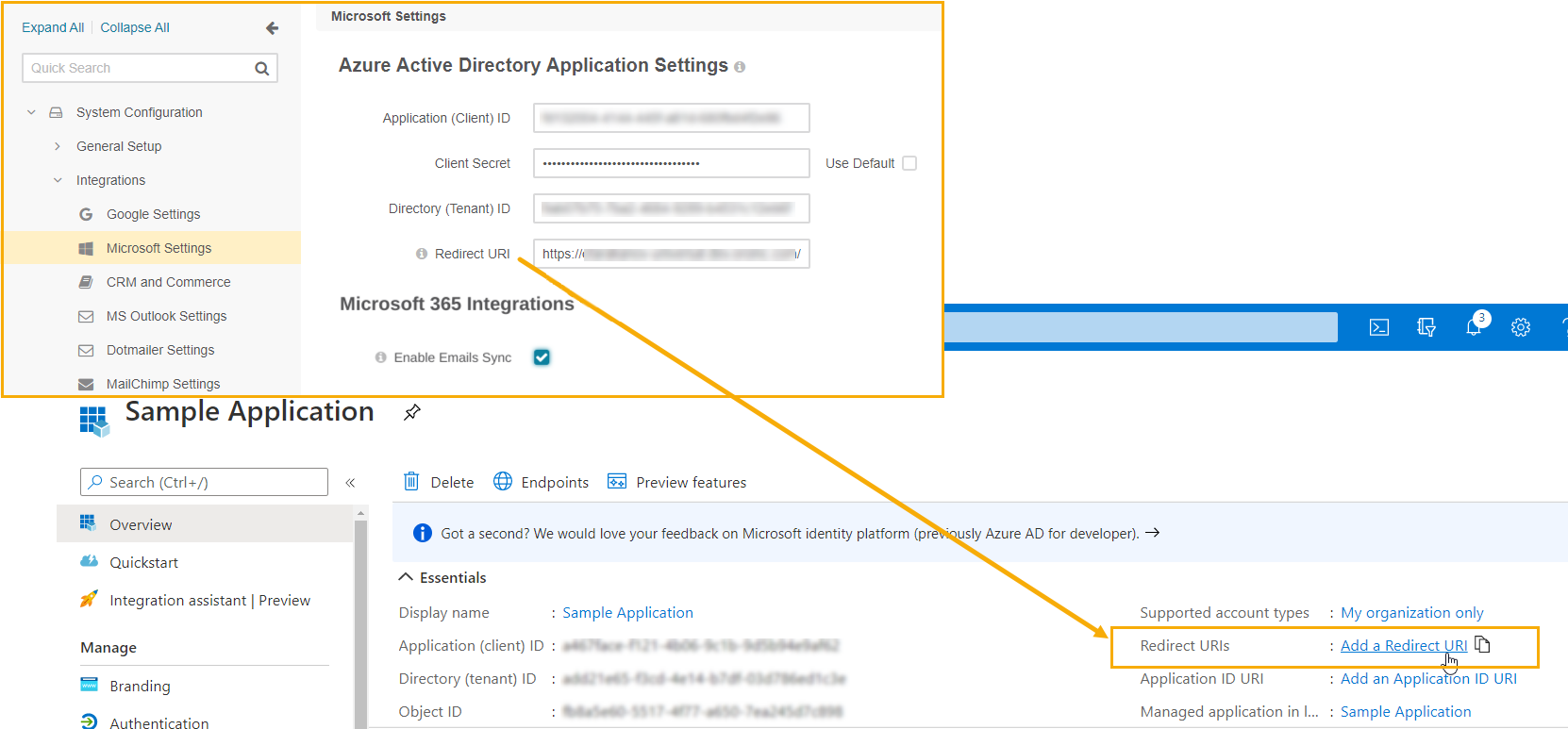
Configure Integration in the Oro Back-Office¶
Once your Azure Active Directory application is configured, you can connect it to your Oro application. Please follow the steps outlined in the Configure Microsoft Office365 oAuth Settings section on how to achieve this.
For instructions on how to connect Office365 account type once the connection between Azure and Oro has been established, please see User Email Synchronization Settings and System Mailbox Synchronization Settings documentation.